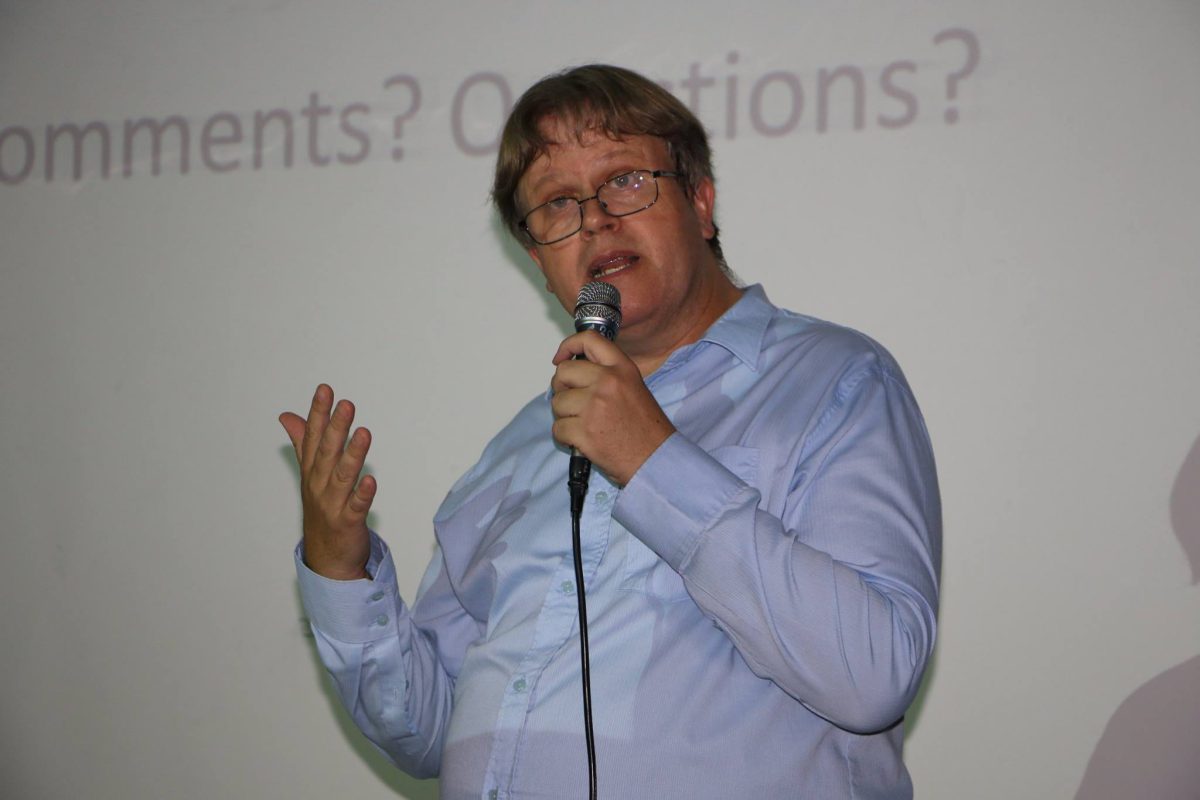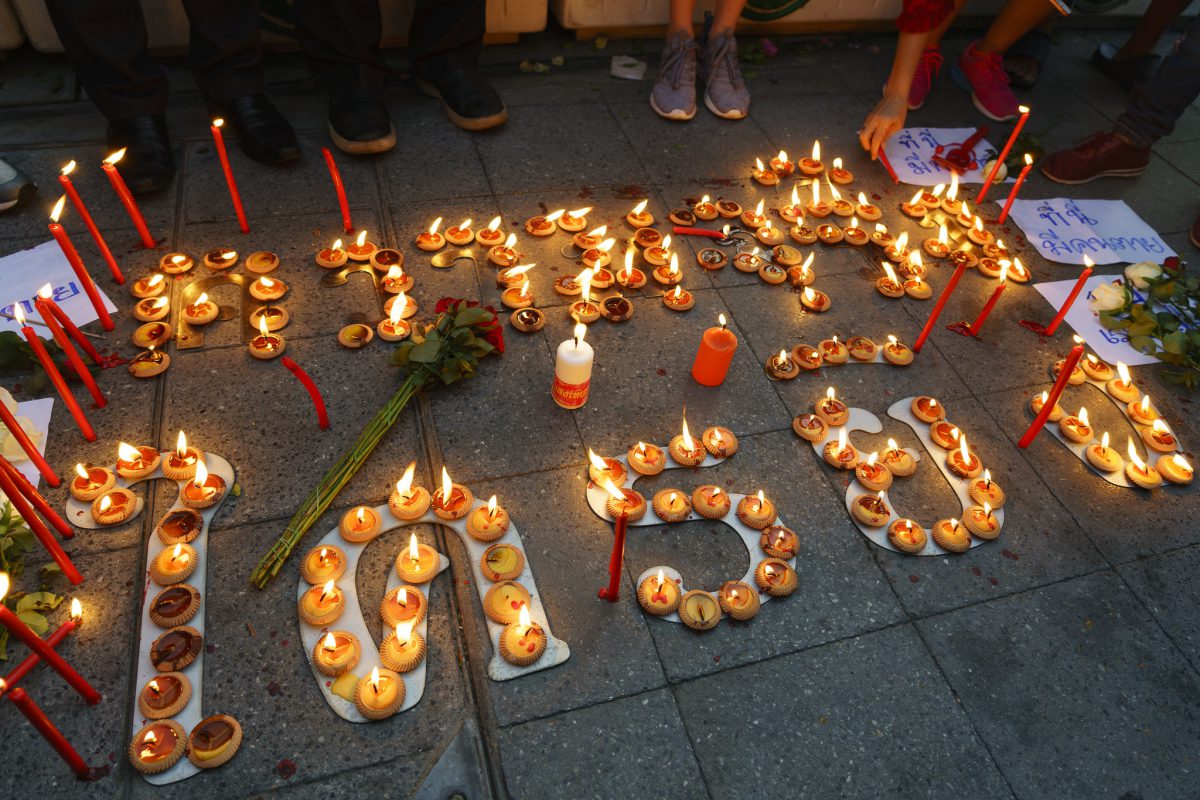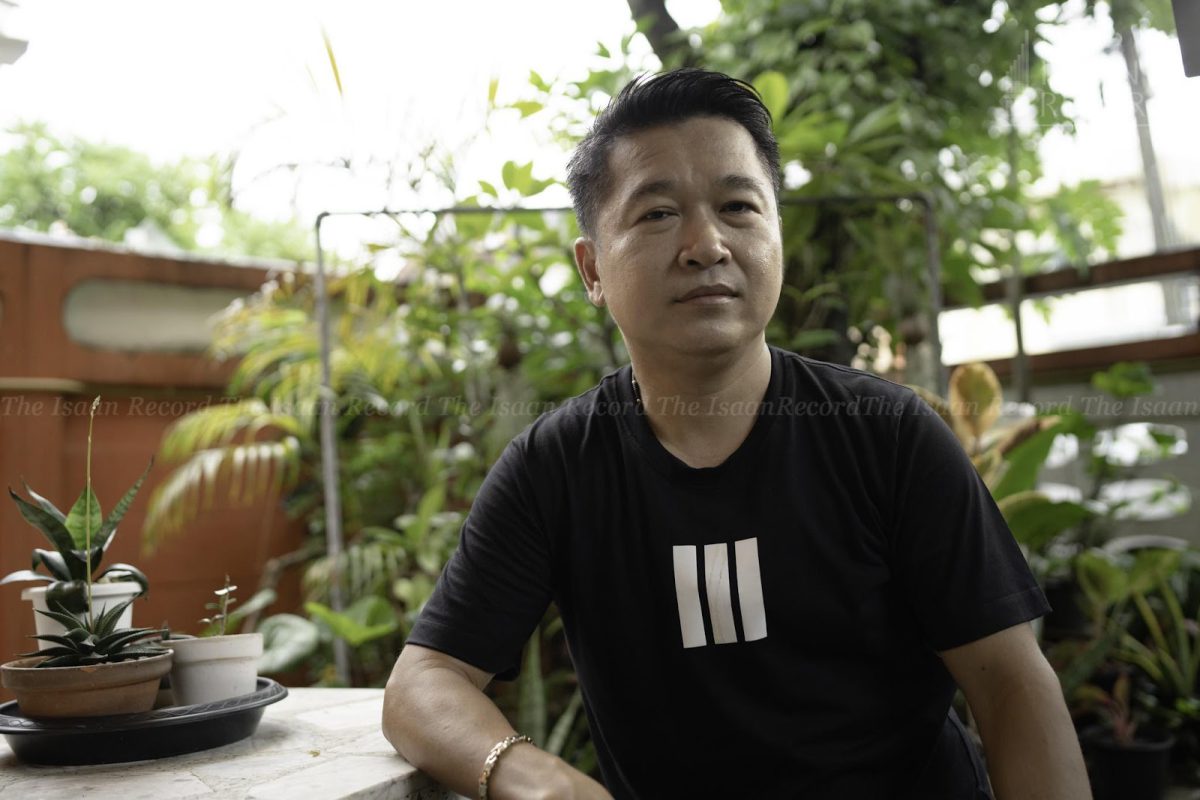KHON KAEN – The Commoner Party of Thailand wants to increase people’s participation in politics, offering them a direct channel into Parliament. Founded by activists and NGO workers in the Northeast, the new party hopes to directly engage voters in designing its policy program.
Co-founder Kornchanok Saenprasert talks to The Isaan Record about the need for local activists across the country to join forces and take their struggles into Parliament. Instead of just casting their votes, he wants people to have a more direct say in the country’s politics.
IR: The founders of the Commoner Party are activists, including NGO workers and members of the student group Dao Din at Khon Kaen University. What motivated you to establish a political party?
For about ten years, we have been involved in social and political activism. We are mainly concerned with issues of natural resources, the environment, community rights and politics. We realized that if Thailand wasn’t ruled democratically, there was no chance we would succeed in our struggles on the local level.
After the coup d’état on May 22, 2014, local people were increasingly affected by several new development projects. It showed that community rights and democracy are actually one and the same issue.
We realized that our struggle in one locality or organized around a single issue was not going anywhere. So we began asking ourselves how can we encourage local people who are fighting to defend their community rights to understand [the concept of ] rights and politics on a structural level.
People can not just care about their own problems, like those affected by the gold mine in Loei Province and the potash mine in Sakon Nakhon Province because the coup-makers have been violating the rights of the general public. People must understand that it’s a structural political problem.

Kornchanok Saenprasert, co-founder of the Commoner Party, has been a human rights activists in the Northeast for almost a decade. He says the idea of forming a party with a new approach to politics has long been in the making.
IR: Why did you decide to establish your own party instead of joining an existing one?
We want villagers to participate in politics and understand issues of human rights on a structural level. Villagers shouldn’t just wait to vote for a particular party that they’re putting their hopes on; they themselves must change.
Most northeasterners have a democratic mindset and they’re just waiting to vote for Pheu Thai Party. But the Commoner Party believes that the people should make policy decisions themselves as they are the ones who are directly affected by local problems.
IR: What are your key policies for the Northeast?
Our policies focus on improving people’s quality of life and guaranteeing their human rights.
People are born with the right to receive free health care. We propose a single-standard health care system that doesn’t separate between civil servants, social security card holders and the 30-baht system. Everyone should pay an equal amount for health care.
Our agricultural policy aims at solving farmers’ livelihood problems. We will allocate unused state lands to the people. For example, there is land managed by the military or owned state agencies that aren’t fully used. We want to re-allocate this land to the country’s eight million land-less farmers.
We also want large agribusinesses to compete on the global market so that Thailand’s farmers can improve their incomes which must come from organic farming.
Regarding education policy, we support free education and alternative education approaches.
IR: According to the changes in the election law, voters will cast a single ballot instead of selecting both a candidate and a party for the party-list. Parties will be hard-pressed to nominate candidates in all 350 electoral districts. How are you preparing for this new system?
The Commoner Party has a network of people in almost every area which will enable us to nominate candidates immediately. But the nomination fee of 10,000 baht per candidate poses a financial obstacle for us. There will have to be at least 100 people supporting one candidate and we are already preparing for this. We plan to nominate candidates in 80 percent of the electoral districts.
IR: Do you hope to become part of the government or the opposition?
We oppose all parties supporting an outsider prime minister or nominee parties of the military. We will only form a government with parties supporting democracy.
I hope for our candidates to become MPs because we want our local supporters to be able to work in parliament. We want be a link for them. They don’t have to wait for the election anymore because we will have party branch offices in each sub district. If people want to give input on particular policies they can just do that at the party offices. People will get a new form of politics which gives them real political access.
Other parties come up with their policies first and then inform their voters. But the Commoner Party will include people in designing policies through discussions. This is the path we are taking and it will usher in a new political culture in which people’s participation will grow. I think, we are currently the only party taking such an approach within the democratic system.
This story was first published in Thai on April 3, 2018. Translated and edited by The Isaan Record.




